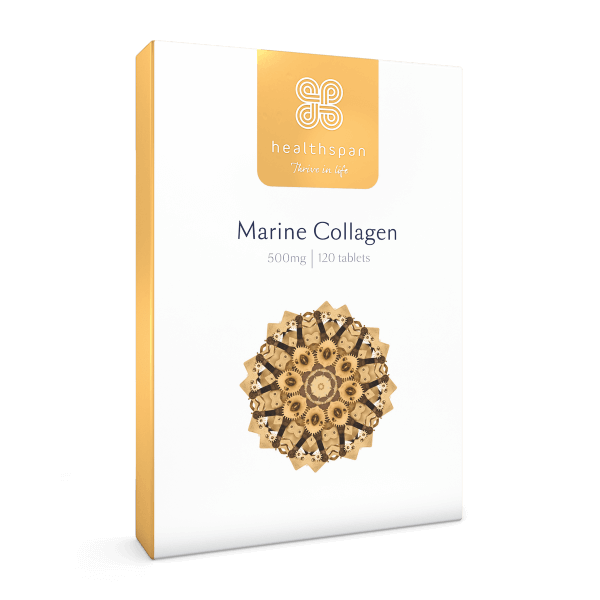Your skin is often the first place to show signs of ageing. Tessa Hilton looks at how to show it some extra care, both inside and out.
Wrinkles, lines, sagging and unevenly pigmented skin are just some of the most visible and unwelcome signs of ageing.
And, although you may not realise it at the time, hormonal changes occurring in the years leading up to the menopause (the perimenopause) and after are the likely culprits.
Post-menopause, loss of oestrogen causes a breakdown of collagen (the gluey substance that holds together the connective tissues of the skin), which is one reason why skin becomes thinner and less elastic.
But although skin problems can be a big issue during the menopause, encouragingly it's never too late to combat some of these changes by giving your skin some TLC. And if you want to go down the natural route, there are many plant-based solutions available.
Inside story
"Nutrition is one of the most effective ways to improve skin quality," says Ian Marber, nutritional therapist (ianmarber.com). "Good skincare is 40 per cent what you do on the outside and 60 per cent what you do on the inside. You need a diet with a variety of foods to provide a full complement of nutrients, including antioxidant-rich fruit and vegetables."
Although nearly all nutrients play a role in skin health, says Ian, there are some whose role is especially important. Biotin and vitamin A help to maintain normal mucous membranes, reducing the risk of dry skin, while vitamin C and zinc help to protect cells from oxidative stress.
The minerals iodine and copper also contribute to the maintenance of normal skin.
Natural solutions
Phytoestrogens are plant compounds which appear to mimic the effects of oestrogen. Isoflavones, a type of naturally occurring flavonoid, are ranked among the most potent, and research has shown isoflavone creams can improve dryness and reduce wrinkles and looseness post-menopause.
Importantly, phytoestrogen molecules are tiny enough to pass through the skin barrier's lipid membrane, explains Dr Julie Thornton, Director of the Centre for Skin Sciences at the University of Bradford.
It's estimated that some women can lose up to 30 per cent of collagen within five years of menopause, but using sunscreen, not smoking or drinking too much and eating well can help prevent that level of damage, advises Dr Thornton.
Dry skin also loves natural serums and moisturisers containing hyaluronic acid, a sugar molecule with an incredible ability to hold moisture, keeping skin plump and moist.

Supplementing with marine collagen is another natural way to give your skin a boost.
Sourced from the scales of wild-caught fish, it primarily consists of type I collagen (the most abundant collagen in the human body), is more easily absorbed than collagen from bovine sources and provides eight out of nine essential amino acids – the building blocks of the body.
What's more, studies have found that marine collagen improves skin moisture and is also rich in antioxidants.

Marine Collagen
Support for your skin, bones and joints
- High levels of hydrolysed marine collagen
- Low molecular weight to aid absorption
- Added vitamin C to support collagen formation
Plant power
To harness the power of plants, look out for these ingredients in your skincare products:
ROSE OIL is a source of vitamin C that nurtures dull, tired skin and also acts as a natural moisturiser. Antioxidants, especially vitamins C and E together, can brighten skin and will also help reduce wrinkles. Other antioxidants to look out for include GREEN TEA and SILYMARIN from milk thistle.
RESVERATROL is a plant compound that can help counter a skin cell-damaging process called oxidative stress, and has been shown to improve skin firmness and elasticity. Grapes, seeds, nuts and red wine are all sources.
PHYTOESTROGENS mimic the effects of oestrogen. They are easily absorbed into the skin and can boost the production of collagen and elastin.
SAGE OIL soothes dryness and contains the naturally occurring plant chemical linalyl acetate, which treats inflammation.
BAKUCHIOL is a plant chemical with retinol-like anti-ageing effects found in the seeds and leaves of Psoralea corylifiola, a legume. Bakuchiol's effect is similar to retinoids, a class of chemical compounds derived from vitamin A, which reduce wrinkles and pigmentation by speeding up cell turnover.
ALOE VERA is another effective soother for dry skin that also helps heal minor burns and skin irritations.







